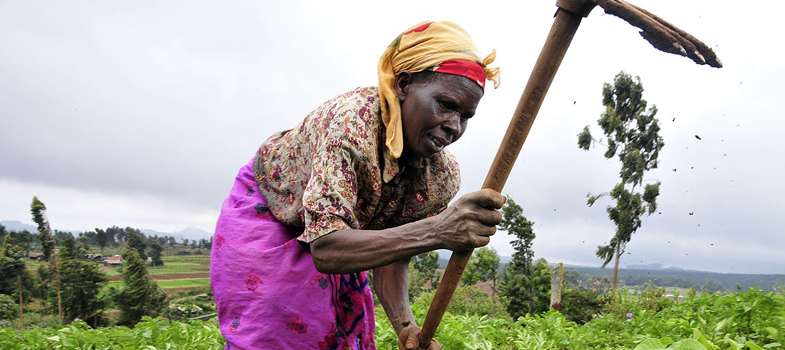References
Adger, W.N. and Kelly, P. (1999) ‘Social vulnerability to climate change and the architecture of entitlements’, Mitigation and Adaptation Strategies for Global Change, vol. 4(3-4), pp. 253-266.
Borda-Rodriguez, A. and Vicari, S. (2013a) ‘Resilience and Ugandan co-operatives: a literature review’, Working Paper No 64, Innovation and Knowledge Development Centre, The Open University and The Co-operative College, UK.
Borda-Rodriguez, A. and Vicari, S. (2013b) ‘Coffee co-operatives in Malawi: building resilience through innovation’, paper presented at the Academy of Innovation and Entrepreneurship International Conference, Innovation and Entrepreneurship for Inclusive and Sustainable Development, Oxford, August 29th-30th.
Burchi, F. and De Muro, P. (2012) ‘A Human Development and Capability Approach to Food Security: Conceptual Framework and Informational Basis’, Background Working Paper No 9 to the Africa Human Development Report 2012, UNDP.
Chambo, S., Mwangi, M. and Oloo, O. (n.d.) ‘An Analysis of The Socio-Economic Impact of Co-operatives in Africa and their Institutional Context’, Kenya, ICA and CCA.
Develtere, P., Pollet, I. and Wanyama, F.O. (eds) (2008) Co-operating Out of Poverty – the renaissance of the African co-operative movement, Geneva, ILO.
Facer, K., Thorpe, J. and Shaw, L. (2011) ‘Co-operative Education and Schools: An old idea for new times?’, The BERA Conference, London, 6 September 2011.
Hartley, S. (2012) Learning for Development through Co-operation: The Engagement of Youth with Co-operatives in Lesotho and Uganda, PhD Thesis, The Open University, Milton Keynes.
ILO (2012) ‘The role of co-operatives and business associations in value chain development’, Value Chain Briefing Paper 2, ILO.
Kaplinsky, R. and Morris, M. (2001) A Handbook for Value Chain Research, IDRC, Canada.
Kwapong, N.A. and Korugyendo, P.L. (2010) ‘Revival of Agricultural Co-operatives in Uganda’, USSP Policy Note No. 10, IFPRI, Kampala and Washington.
Lallau, B. (2008) ‘Les agriculteurs Africains entre vulnérabilité et résilience. Pour une approche par les capabilités de la gestion des risques’, Revue Française de Socio-Économie, vol. 1(1), pp. 177-198.
MacPherson, I. (2003) Encouraging Associative Intelligence: Co-operatives, Shared Learning and Responsible Citizenship, Co-operative College Paper 1 - Co-operative Learning and Responsible Citizenship in the 21st Century, Manchester, Co-operative College UK.
Msemakweli, L. (2012a) ‘Co-operatives in Uganda: from Old to New Models’ unpublished paper from the Uganda Co-operative Alliance, Kampala.
Msemakweli, L. (2012b) ‘New Approach to Co-operative Development in Uganda’ unpublished paper from the Uganda Co-operative Alliance, Kampala.
Münkner, H-H. (2012) ‘Co-operation as a remedy in times of crisis. Agricultural co-operatives in the world. Their roles for rural development and poverty reduction’, Marburg Studies on Co-operation and Co-operatives, no. 58.
Pollet, I. (2009) Co-operatives in Africa: the age of reconstruction – synthesis of a survey in nine African countries, CoopAfrica Working Paper 7, Geneva, ILO.
Sen, A. (1999) Development as Freedom, New York, Oxford University Press.
Simmons, R. and Birchall, J. (2008) ‘The Role of Co-operatives in Poverty Reduction: Network Perspectives’, Journal of Socio-Economics, vol. 37(6), pp.2131-2140.
UCA (2012) Annual Report for the Year 2010/2011, Kampala.
United Kingdom Co-operative College (2011) ‘Uganda”, International Case Studies on Co- operative Development prepared for the Agricultural Transformation Agency, Ethiopia, October.
Back to previous pagePrevious
Box 1 The development of the Ugandan co-operative movement
